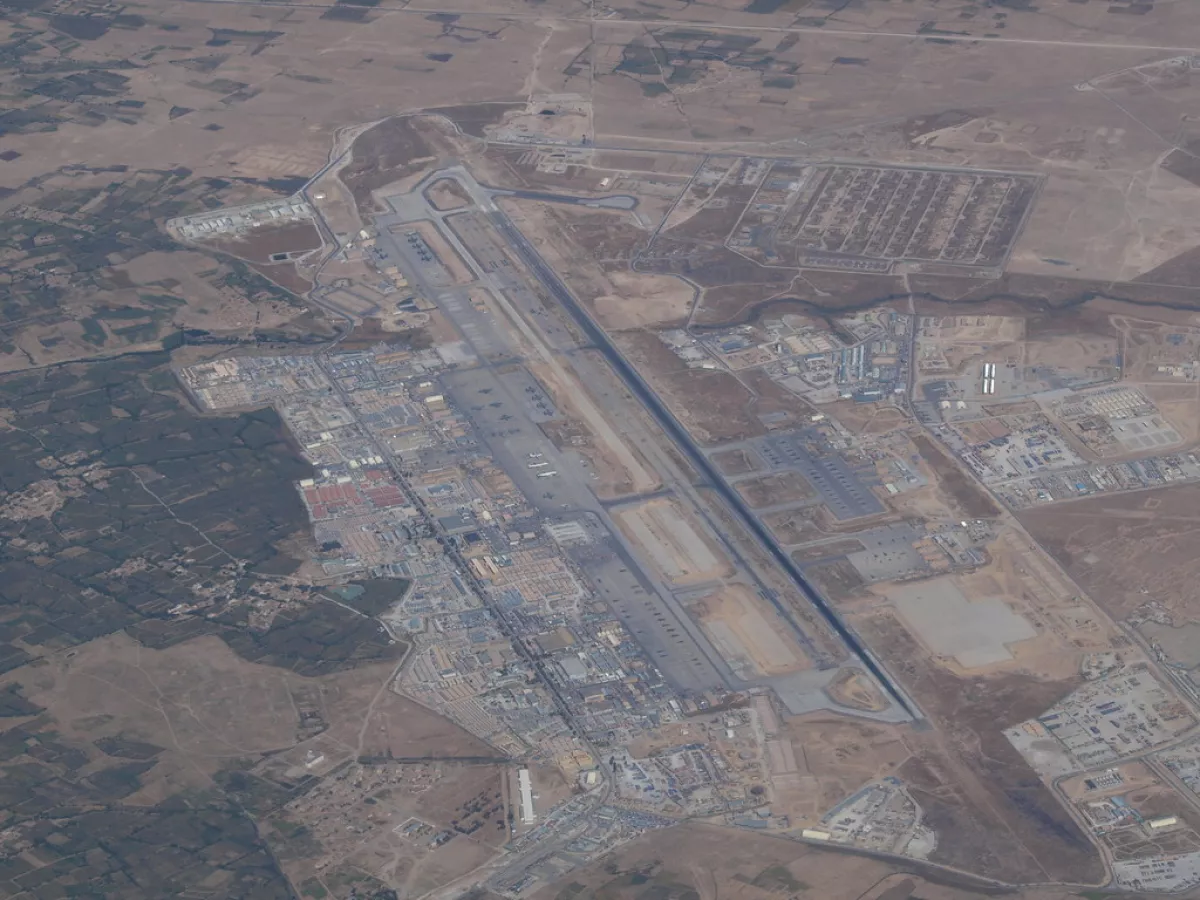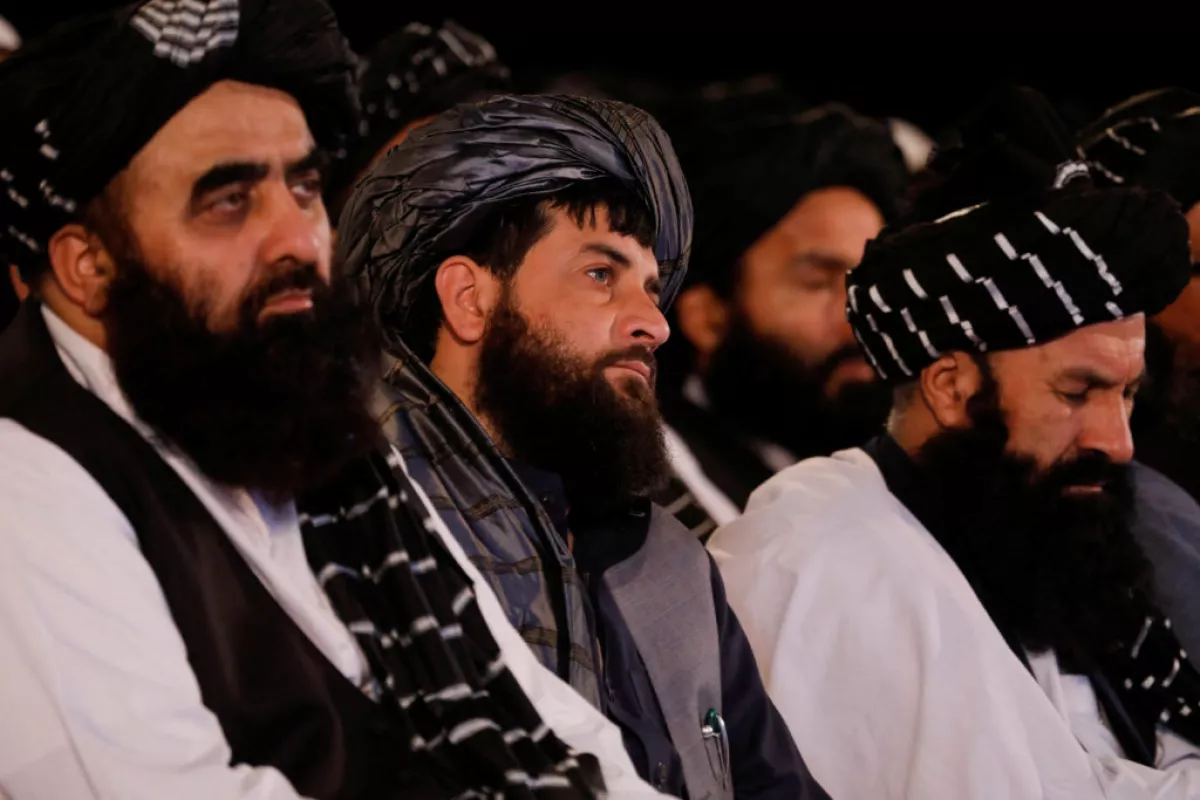US renewed focus on Afghan airbase risks igniting regional powder keg
Following Donald Trump’s return to office, US foreign policy toward Afghanistan has undergone noticeable shifts.
Unlike the Biden era—marked by limited engagement and a hands-off approach after the chaotic US withdrawal—the new administration has taken steps to re-establish dialogue with Kabul.
Trump’s recent public declaration of his intention to restore US control over the Bagram Airbase, stressing its strategic importance, further highlights the geopolitical weight his administration attaches to Afghanistan. As previously reported by Caliber.Az, his remarks have sparked debate in Washington, with some voices supporting the proposal.
A return to Bagram might, in theory, appear tempting at first glance. The airbase, which was originally built by the Soviet Union during its Cold War-era deployment, was the largest installation of the US force in Afghanistan during its "War on Terror." From there, the United States could monitor China, track Russian activities in Central Asia, watch Pakistan’s nuclear developments, and launch operations against extremists, particularly the Islamic State Khorasan Province (ISKP). Given these advantages, it is little surprise that Trump warned the Taliban that “bad things” could happen if they refused to give back Bagram.
However, while the potential benefits may seem appealing, an article published by The Diplomat warns that the risks for the US far outweigh the rewards. Despite the perception that reclaiming Bagram would enhance American interests and security, the article argues the opposite: a renewed US presence would most likely undermine them.
In order to better illustrate why Trump’s plan to "retake" the airbase could backfire, the author examines the three commonly cited approaches that are being proposed on how the US should go after regaining Bagram.

The first is retaking the base by force—a scenario the author dismisses as unrealistic. The Taliban now possess more than $7 billion in US weapons and vehicles left behind in 2021, giving them more firepower than at any point during their two decades of insurgency. Taliban officials have threatened suicide bombings against any foreign presence, a tactic they used repeatedly during the war.
Moreover, any mission to retake Bagram would have to contend with a highly complex regional landscape, where US military access is limited or entirely absent: Iran borders Afghanistan to the west, Turkmenistan, Uzbekistan, and Tajikistan lie to the north, and Pakistan surrounds the east and south. Even in the most optimistic scenario where Washington successfully reclaims the base, maintaining control would demand thousands of troops and extensive logistical infrastructure—an undertaking no administration could realistically sustain or gather support for.
A second option is negotiating directly with the Taliban. While seemingly more practical than the previous option, the piece argues that this approach is equally improbable. Since Trump’s remarks, Taliban leaders have rejected the idea outright.
The article further points out that the Taliban rose to power on a narrative of jihad, resistance, and austere Islamic rule, and striking a deal with their former invader would erode their ideological legitimacy. A negotiated return, therefore, remains implausible.

The third proposal involves third-party management, with regional Muslim countries such as Qatar overseeing the base. Yet the author warns that “changing the flag changes nothing.” Even if the Taliban allowed Muslim troops to occupy the site, the US would still need personnel and munitions to operate effectively. Without an American presence, such an arrangement would yield costs but little benefit.
Setting aside feasibility, the article argues that even a successful takeover would not deliver the strategic gains advocates expect. While counterterrorism is cited as the main rationale, a new US footprint could instead inflame extremism. Bagram itself would become a prime target for Taliban factions, ISKP, and al-Qaida remnants. Moreover, the return of “infidel soldiers and their allies” could serve as a propaganda tool for ISKP, fueling recruitment across South and Central Asia.
A different world order than 2001
Beyond the terrorism risk, the analysis by The Diplomat warns of serious geopolitical repercussions. Unlike in 2001, today’s international landscape features a far more assertive China and Russia.
Beijing has already condemned any US return, warning against heightened tensions and emphasising Afghanistan’s sovereignty. Moscow, meanwhile, has long accused Washington of seeking to destabilise the region.
In recent months, China, Russia, Iran, and Pakistan have even jointly opposed the establishment of foreign military bases in or near Afghanistan.
A renewed US foothold at Bagram, the article concludes, would almost certainly provoke countermeasures from these powers—fueling instability inside Afghanistan and escalating great-power tensions across the region.
By Nazrin Sadigova








